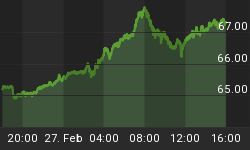Proof there is no rebalancing in Europe is easy to find. For example, El Pais reports Spanish Debt Grows by €146 Billion.
What follows is a Mish-modified translation of the above Google-translation.
Key Points
- The public debt exceeded €882 billion at the end of 2012
- Debt Grew by €146 Billion in one year
- The increase in the first year of Prime Minister Mariano Rajoy is the largest ever recorded
- Debt-to-GDP is highest since 1910
- Interest expense is at record high
The Government and the Bank of Spain debt figures are chilling. Government debt broke records in 2012. In the first year of the Government of Mariano Rajoy, debt skyrocketed to €882 billion, a one year increased of €146 Billion. Never in the economic history of Spain's general government debt had increased so much in a single year. In five years, the debt has increased by €500 Billion, Debt is one of the major drags on the recovery of the Spanish economy.
Debt to GDP

The increase in public debt in 2012 is the equivalent of more than 14 percentage points of gross domestic product (GDP). €882 billion is equivalent to between 83.5% and 84% of GDP. The government had forecast a ratio of 79.8% for the 2012 budget last July, but has since revised the figure upwards. In relative terms, debt-to-GDP is at highest debt level in more than a century, particularly since 1910, when the Spanish debt stood at 88% of GDP, according to a historical IMF data.
Despite cuts and tax increases, the government of Mariano Rajoy has been unable to significantly reduce the gap in the public accounts.
Skyrocketing Public Debt

Outstanding liabilities will probably exceed 100% of GDP at the end of the year, and there are more than €100 billion of a government debt in the hands of others (Social Security mainly). The €882 billion figure also does not include about €60 billion of debt owed by public enterprises.
A Troubling Context
To Emilio Ontiveros, president of Financial Analysts International (AFI), "the main problem is the payment of interest, because it is the most unproductive spending item possible and occurs in a country that has had to cut back in other areas and need to recover growth."
Spain had never spent so much money to pay only the interest on its debt: €38.66 billion. Financial expenses for the first time in history exceeded staff costs. "If you do not grow, you cannot pay your debts," said Ontiveros, who argues that Spain should have requested the bond purchase program prepared by the Bank Central Bank (ECB) to cut interest paid on Spanish debt markets, a mechanism for which the Government should ask before rescue its European partners. "The corollary of this is that Spain needs urgent measures aimed to reduce this expense," he says.
The average interest paid by the state's debt is 4.1% with an average maturity of 6.1 years, but this level of return that investors demand may grow by the economic downturn. Despite the truce that markets have given Spain, political tensions rose in Spain and Italy.
Jose Carlos Diez, chief economist Intermoney, warns that Spain fails in all the variables that serve to stabilize the debt: its economy does not grow, it pays a high interest rate and has primary deficit (prior to payment of interest on the debt). "This dynamic eventually leads to non-payment," he reflects.
End-Transalation
Note that last comment by Jose Carlos Diez, chief economist Intermoney "This dynamic eventually leads to non-payment."
Indeed!
More on Non-Rebalancing
Many economists see signs of stabilization. I see signs of delusion in economists.
- Germany Rebounds but ... France Economic Implosion Accelerates; Record Decrease in Service Employment in Italy
- German Trade Surplus Hits Five-Year High; Rebalancing the Wrong Way
- Illusions of Stabilization
- Europe à l'Hollandaise; Socialists Who Wrecked France, Demand the Same for Rest of Eurozone
- Wealthy French Eye Belgian Tax Breaks (Everyone in France Should Do the Same)















